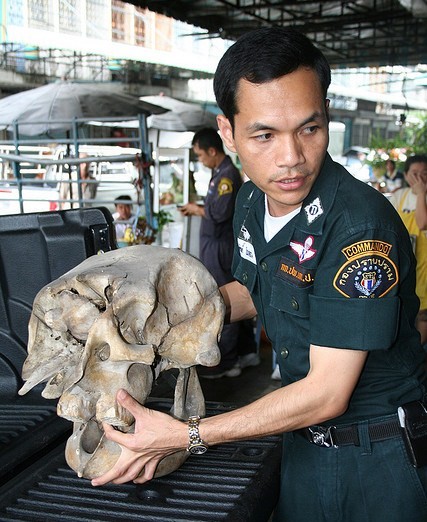- What We Do
- Agriculture and Food Security
- Democracy, Human Rights and Governance
- Economic Growth and Trade
- Education
- Ending Extreme Poverty
- Environment and Global Climate Change
- Global Climate Change
- Conserving Biodiversity and Forests
- Sustainable Urbanization for Global Progress and Security
- Securing Land Tenure and Property Rights for Stability and Prosperity
- Sustainable Land Management
- Environmental Impact Assessment
- Knowledge Management for Environment and Natural Resources
- Sustainable Tourism
- Earth Day
- Gender Equality and Women's Empowerment
- Global Health
- Water and Sanitation
- Working in Crises and Conflict
- U.S. Global Development Lab

THE PROBLEM
Wildlife crime — poaching and trafficking in wildlife and wildlife products — endangers elephants, rhinos, tigers, sharks, parrots, and many other species. It also threatens the safety and development prospects of rural communities in wildlife-rich areas. International criminal networks use poverty and fear to recruit local poachers and traffickers, and take advantage of weak laws and enforcement, porous borders, and corrupt officials. Nature-based tourism, an important source of revenue in many developing countries, is threatened by the loss of iconic wildlife and increased risk of encountering heavily armed criminals.
THE CHALLENGE
The Wildlife Crime Tech Challenge called on innovators around the world to share their science and technology solutions to combat the illegal trade in terrestrial and marine wildlife. An initiative of USAID in partnership with the National Geographic Society, the Smithsonian Institution, and TRAFFIC, the Challenge rewarded innovations that tackle four key issues:
- Understanding and shutting down trafficking routes
- Improving forensic tools and data gathering to build strong criminal cases
- Reducing consumer demand for illegal wildlife products
- Combating corruption along the illegal wildlife supply chain
CROWDSOURCING INNOVATION
The Tech Challenge received 300 applications from 52 countries around the world. Forty-four finalists were invited to compete for a Prize Package of $10,000 and technical and networking support to scale their solutions. In January 2016, 16 Prize Winners were announced, each of whom presented exceptional innovations with the potential to positively impact the fight against wildlife crime. In the final stage of the competition, USAID awarded more than $900,000 to four Grand Prize Winners chosen from this elite group.
Visit wildlifecrimetech.org to read about our winners, learn more about the Challenge, and register for updates. Click here to download a one-page summary of the project.







Comment
Make a general inquiry or suggest an improvement.